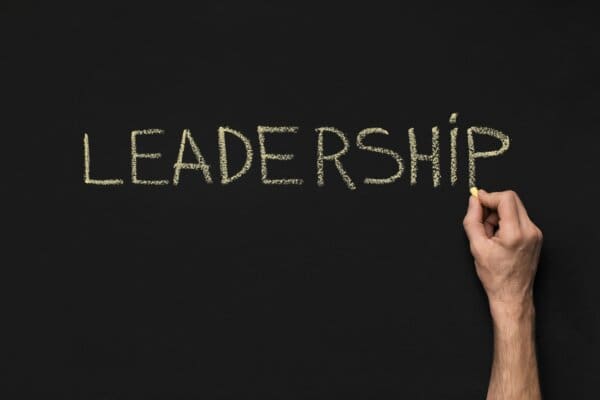Learn How to Make Better Decisions, Quicker With the Corporal
Your alarm went off… and you decided to get out of bed this morning. You got dressed, and thus decided against going to work in your fluffy pyjamas. Now, you’ve decided to read this article. If I’ve done my job well, you’ll decide to read to the end. Then you can decide how much it’s helped you.
That is a description of three decisions you’ve already made today and two that you will inevitably make in the next 10 minutes. Decisions are everywhere and we make them thousands of times a day. The average adult makes 35,000 decisions per day that are conscious, active choices. The ones we think about.
There is, however, an incomprehensible number of unconscious decisions we make every day. On the way to work, you unconsciously decided not to drive the car into oncoming traffic because, of course, that would have been counter-productive.
Those types of decisions are, for the most part, out of our control. Luckily, the active choices we make are 100% up to us. Throughout this article, you will learn how to make a decision. How to stop pondering over them, driving yourself nonsensical, and living in eternal fear that you’ve made the wrong choice. And things simply will not be the way they were supposed to be because- apologies, I ran a touch far with that.
Perhaps I should give my own article a quick glance. This is, however, quite a common thought process among fellow decision-procrastinators.
When Corporal Decision died tragically at the foot of enemy soldiers in 1843, he left behind a great legacy. His 5 commandments. Five rules that must be followed when making a decision. These commandments crossed my desk very briefly but, luckily, I managed to commit them to memory. Here they are.

C1. The Golden Rule
Running upfront, with a specific message that read “Even if no other commandments are followed, this one must be, at all costs”,
The Golden Rule:
“Ye who believes in an incorrect decision shalt never decide upon anything.”
The golden rule. The wrong decision does not exist. I’ll give that a minute to sink in.
I ran into a problem while ignoring the golden rule a couple of years ago. I had a choice to make, attend college for film production, or attend sixth form and study a variety of subjects. Whilst I knew I was not cut out to be a sixth form student, I also worried myself silly over the idea that I was ‘specialising too early’. I was worried that, if I was to study film production, I’d be narrowing my path significantly very early in my life.
Eventually, I stopped whining and chose college. The thing was, I knew I wanted to do it. I could pretty much guarantee that, if I’d have gone to sixth form, I’d end up in the same place still wanting to do the same thing but having much less experience and qualification for it.
So Decisions Can be Right or Wrong?
Yes, I believe I made the right decision in going to college. No, that does not mean the wrong decision exists. I have no way of knowing if college was the best thing for me to do. Sixth form could have given me the opportunity to realise something else I wanted to do. The point is, I’ll never know. So all that whining I did about the decision I had to make was completely pointless anyway. Either way, I’d have made it work. That’s what really matters.
Now I’ve explained myself a little, it’s easy to realise the lack of positive contribution procrastinating a decision really holds.

The fear of making the wrong choice is what hindered my decision making before college and it’s what hinders you when you do the same. This fear, as powerful as it is, is actually only valid in the scenario in which one partakes in the ever-taxing game of ‘Deal or No Deal’.
Make the wrong choice there, and thousands of people watch you lose the chance to win a fortune. Embarrassing. However, when not taking part in televised family game shows, the concept of a wrong choice only exists until you’ve made the decision. Once the decision is made, you’ll never know if it was right or wrong.
C2. Trust Your Gut
Corporal Decision, being a soldier, had to rely heavily on his instincts. Of course, this is a natural response. The misconception lies, however, in the belief that making decisions based on your instincts is an ‘in the moment’ phenomenon. This is not the case. When we think instincts, we think ‘fight or flight’, that sort of thing. Whilst this is a perfectly valid description, it is not the whole story. The gut feeling to choose left rather than right is based on genuine analysis.
If your instincts were always wrong, they wouldn’t exist. For example; the age-old mother’s instinct. Technically, the concept of maternal instinct is a myth. Although, I’ve sure heard a good few stories where a mother’s instinct has saved their child’s life. The point is not that there is concrete research that proves instincts are trustworthy, it’s that your gut feeling is based on subconscious analysis. Ergo, logic.
There are, of course, times at which you should not trust your gut. This, however, fortunately, works in our favour too. When the circumstances of your decision are abnormal or are clouded by something external, do not trust your gut. Emotional decisions are the culprit here. Emotions fill your subconscious with, more often than not, illogical thoughts.
When deciding to move universities for a young relationship, make the logical decision. Don’t trust your gut. Your instincts are fuelled by nothing but illogical emotion in times like these.
When circumstances prevail, analyse the decision and understand whether it’s logical to trust your instincts or not.
Sticky Learning ® is 7 times more effective than 1-day training courses. Plus, you will get a Chain of Evidence proving your Return on Investment. Discover soft skills training that changes behaviours long term.

C3. No Decision is a Decision
When faced with a choice of wearing a hat or a scarf (assuming you cannot wear both) most would believe there are two options to choose from. The hat or the scarf. It’s a chilly 5 degrees outside and you feel weighted by this incredibly tough decision. Needless to say, this is understandable. The hat, or the scarf? Well, let me introduce you to a foe of mine: secret option number 3. Neither.

Whilst procrastinating on the decision of hat or scarf, there is always the potential that things simply get too much. After pondering over your choice for extended periods of time, it becomes near impossible to make it. Thus, you couldn’t choose between your hat or your scarf so got left with option 3, neither. And you were cold.
To contradict myself slightly, there absolutely is a wrong decision and it’s secret option 3. He’s a right son of a gun. Froze my bloody fingers off that day. Anyway…
Making no decision is the decision you make.
C4. Pressure Yourself
Similar to commandment number 2, Corporal Decisions army days filtered through and influenced this one too. Commandment 4, pressure yourself. Decision was forced to work under pressure, under fire even. In moments like these, decisions must be made. Fast. Choices that are quite literally life or death. Fortunately, most of us don’t have to make decisions with the weight of many lives on our shoulders. However, the principle of quick thinking can be carried through to our lives today.
It’s usually clear when a decision needs some thinking about. Some time to understand the benefits and drawbacks. In this case, commandment number 5 is invaluable. We make small decisions voluntarily and spend time on bigger ones. Let’s call this scenario’s choices ‘medium choices’.
When making medium choices, it can be perilously easy to fall into the ‘big decision trap’. It’s a dark place. Pondering your socks off over something that actually doesn’t matter all that much in the long run.
Trust me, I’ve been there. Due to that, I’ll let you in on a little secret. The more time you spend thinking over a choice, the less perspective you have. In decision making, time equals detail. The more you ponder, the more in-depth the details of each choice become.
The solution, a trick of the trade if you will, is…
Wait for it.
The Smartphone Timer

I know – simple. Choosing which desk you should get for the new home office? (COVID and all that…) 5 minutes. 5 minutes from before you reach the IKEA homepage – that is. From even before your iPad is unlocked – that is. Stop worrying about the fact that the ‘Hudal’ has more drawer space for your air fresheners, but the ‘Kerwig’ has a deeper surface for colouring books and just choose one.
5 minutes. Have a quick browse through the old IKEA website, narrow it down to a couple of options, close your eyes, and just hit the damn ‘Add to basket’ button. It’s a desk. I promise it’ll be fine.
As foolish as it may sound, I, among many others, genuinely get caught up in decisions like these. Of course, the desk story is a little exaggerated but those of us with choice-procrastination problems are all currently singing from the same hymn sheet. Right guys?
C5. Never Underestimate the Power of Pros and Cons
The madness that ensues deep into choice-procrastination is fuelled by its own chaos. There’s a very simple method to aligning this chaos into something that resembles non-psychotic order. Pros vs Cons.
Top tip: do this with a pen and paper. Not electronically. Trust me.
Pros down one side, cons down the other. I’m not suggesting you should pick your next career path based solely on writing the benefits and drawbacks. That would be psychotic order. It is, however, a sorely underestimated starting point for a decision of any size. Small, medium, or life-changing. When the madness ensues, introduce some organisation of your thoughts.
I touched earlier on things that can cloud your judgement and influence your decision for the worst. This is subjective decision making. Agreed, all decisions are subjective. Some more than others. This subjectivity is one of the sources of chaos, though. That is why asking others for advice about what you should do, especially amidst the madness, only fuels it further. All you’re doing here is introducing further subjectivity into a decision that actually has nothing to do with that person anyway.
Subjectivity
So, we strive to excommunicate as much subjectivity as possible. The amazing thing about pros and cons is that it’s based solely on fact. This choice is better because of these 5 concrete reasons. However, this choice is better because of these 7 concrete reasons. Boom. You just made the choice.
Option 2 is clearly the stronger path to take. Objectively. Now, as much as we’d like to remove all subjectivity, there are still ‘you-based’ elements to this. Whilst option 2 has more reasons to be better, the 5 reasons from option 1 might mean more to you. In this case, it’s not as simple.

The solution? Make one list. Make it exhaustive and stick to it. There may be some further pondering required but strive to keep the majority of the subjectivity at bay by referring always to the pros and the cons. If the pondering gets tough, refer to a previous commandment. May I suggest commandment number 4? You’ll have a solid decision in no time.
I’m Right Here With You
It’s quite clear that I, myself, struggle with decision making. The final word of this article is me saying, I get it. It feels foolish and overkill but overthinking can, at times, feel like it may actually be the death of me.
OK, a little extreme… but trust me when I say; if you’re not someone who struggles with this, it’s a problem for many people just like me who can’t damned decide if the extra 30 quid is worth it for a new pair of headphones. It was, by the way. They’re amazing.
I started looking for some headphones because my old ones are basically derelict at this point. How middle class of me. I knew, going to university, that I’d need some better ones for film projects etc. Nine. Nine pairs I researched. Online, in-store, the lot. It’s excessive. It was only excessive, however, because the decision was attached to a huge change in my life.
I’m going off to uni so these headphones have to be the dog’s doo-dahs otherwise I’ll be stuck in a… normal regular city with plenty of opportunities to change my mind in 3 months. That’s unfortunately not how I thought about it at the time.
Commandment number 5, I needed to remove that subjectivity. Remove the connection to something that feels so big and regain my perspective to realise how insignificant the decision actually is. Too little for a pros and cons list even. I used trusty old C4: Pressure yourself. Ditched seven of the nine pairs, put two on the screen, and gave myself 30 seconds. I just picked one, and they work fantastically!

You Don’t Struggle, But One of Your Team Does
I can imagine the scenario in which you’re not as phased by decision making as someone in your team. If this is the case, I’d like to say, first and foremost, a big thank you for reading this far. I sincerely hope you’ve enjoyed the read.
Back to business, though. These techniques can be actionable for someone in your team. Especially if you’re in a managerial position of some kind, or you simply are responsible for others in your company. See if you can spot someone who struggles with choice-procrastination. If you can, or do, introduce them to Corporal Decision. If they ask you for advice about a decision that seems small, recommend them a commandment that might help. You’d really be helping them out. Sometimes some tough love is necessary.
On second thought, however, if you do this they might be gunning for your job one day. Best keep things quiet.




